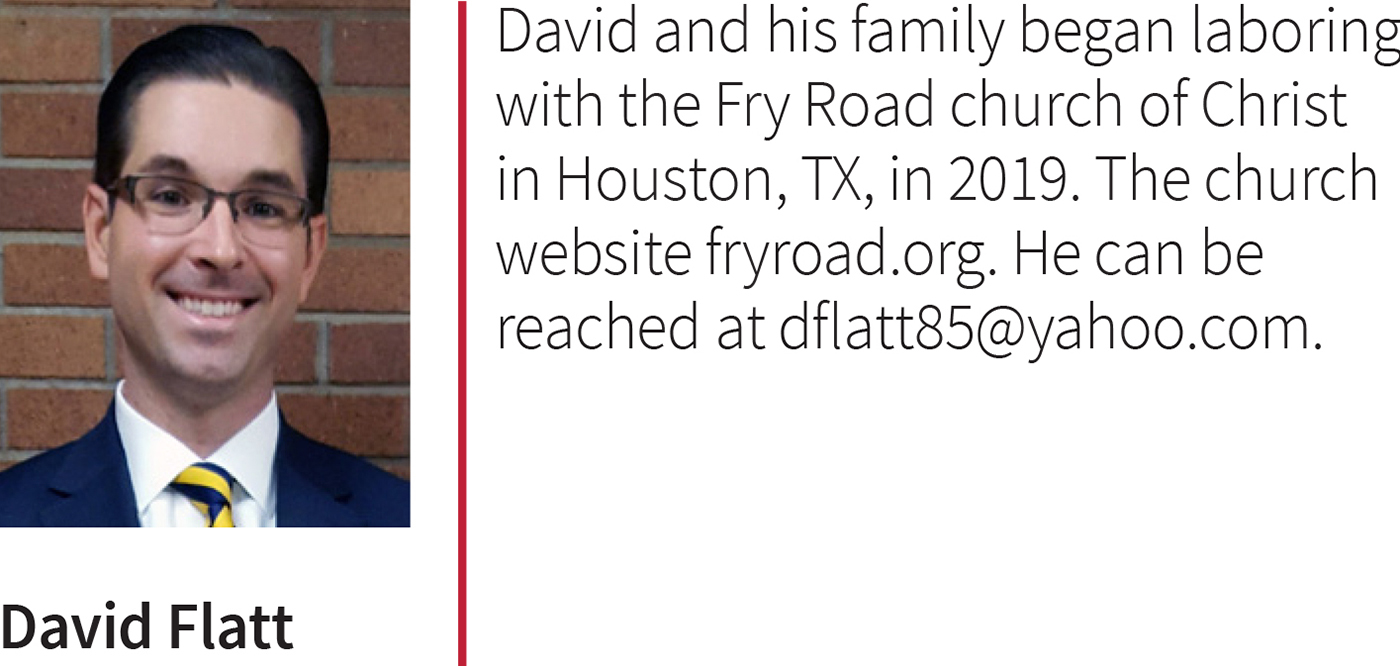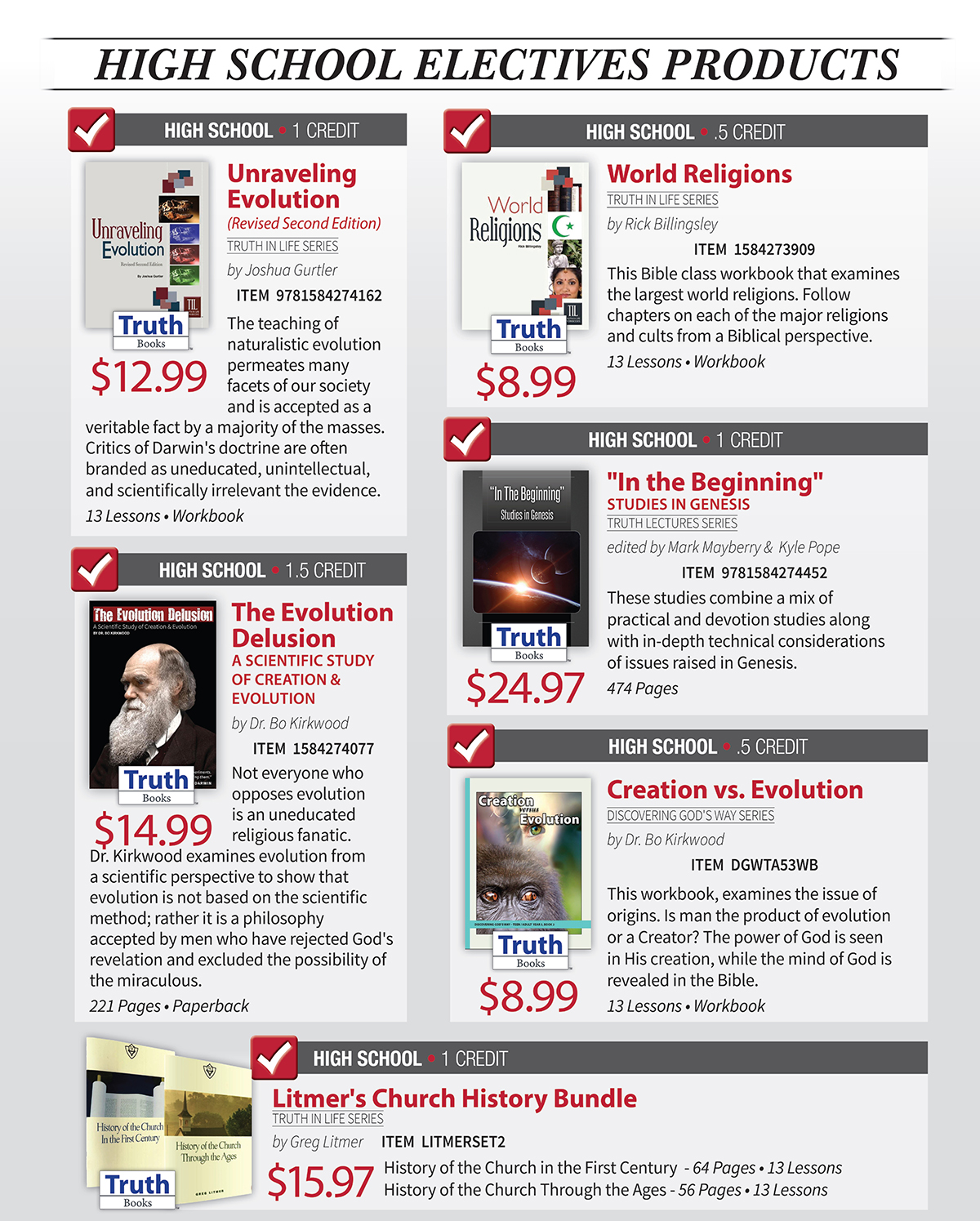
by David Flatt
Synopsis: Believers experience a spiritual metamorphosis when they fully commit themselves to the resurrected Savior, being transformed in heart, mind, action, and associations.
Paul has taken his readers on quite a journey. He has explained how God was faithful to the covenant He made with Abraham through Jesus the Messiah (Rom. 1-4). He has shown how the Messiah offers a hopeful, new exodus (Rom. 5-8). He has described what God had been doing throughout Israel's history, using rebellious people to bring salvation to everyone (Rom. 9-11). God purposed to save everyone through faith in Jesus Christ: Jew and Gentile. No one is beyond the reach of God's saving grace. The gospel is for everyone.
In Romans 12-15, Paul focuses on those in Rome who had become part of God's family. What was this newly reconstituted family of faith to do? Two themes occur in this section of Romans regarding the new life in the family of God: (1) How does this family find unity among themselves, and (2) How is it to live in the world?
Paul has explained the past, documenting humanity's prior rejection of God. Also, he has revealed the future, especially God's plans for humanity's judgment. In this section, Paul addresses what life is to be like for the family of God in the present age.
The present age in which Paul and the saints in Rome were living was evil. The current era in which we live is also evil. God provides rescue from this evil environment through the Messiah (Gal. 1:3-4). Therefore, we must not allow contemporary culture to shape how we think and live. Instead, we must seek the renewal of our minds.
The world continually tries to reshape our thinking. As Paul explained earlier, there are right ways and wrong ways of thinking (Rom. 1:21). Wrong thinking leads to wrong living. Darkened hearts and foolish minds will incur the wrath of God (Rom. 1:32). Therefore, our minds must be renewed. This is easier said than done. We must not allow our minds to be shaped by worldly, sensual living. Selfish and impulsive desires must not be allowed to shape our thought processes. Renewing our minds by the mercies of God will result in transformational living.
Transformation involves a complete change. No part of our being can remain unaffected. Saints who think they can serve God without being transformed do not understand Jesus. As was explained in Romans 6, those who have been baptized take on a new life. New promises are made that must be kept. Initially, the extent of this new life may not be fully understood; yet, in time we will be transformed by renewing our minds.
We must give a thoughtful analysis of our way of life. Some Christians do not consider the impact their life has on them, those around them, or the family of God. As believers, the burden of proving the validity of our lifestyles is on us. By renewing our minds and transforming our lives, we can become living, breathing proof of the power of the gospel.
In verse 3, Paul addresses the broader purpose of the newly gathered family of God. He introduces the theme of unity. While this subject will be discussed in greater detail in chapters 14-15, Paul articulates this critical concept at this point.
While believers are a diverse family, yet we are bound together in unity. To be sure, our diversity is an asset; yet, Christian unity is based upon a common faith. Paul reminds the saints at Rome how each had been given a measure of faith. Their belief in what God did through Jesus Christ ultimately brought them together, and, moreover, it would keep them together.
This passage is also noted for Paul's use of describing God's family as a body (cf. 1 Cor. 12). The point of this analogy is apparent: In Christ, we all have different backgrounds, abilities, and even struggles; however, we are all necessary for the body to function effectively in the world.
As members of God's family, let us heed the lessons of unity as explained in this letter. The world continues to promote and perpetuate division. Tragically, discord is often present in the family of God. Its evidence can be seen on social media and in our assemblies. Political, racial, and social tensions are presently straining and breaking some relationships, just as they have in the past.
If we hope to experience peace as brothers and sisters in God's family, we must renew our minds and seek transformation. The world uses division to accomplish selfish goals, exploiting differences to divide and conquer. We can easily allow divisive tactics to shape our minds, thus harming Christ's body.
Unity will not come by ignoring divisive issues. It does not occur by majority rule. It requires more than merely declaring "Jesus is the answer," without explicitly defining problems or how they are to be fixed. Unity will come through love for Jesus and each member of His diverse family. For the sake of unity, we must be willing to discuss our differences, acknowledge the hurt we may have caused, and seek reconciliation with our Father and our family. Only those of renewed minds will pursue unity to such a self-giving extent.
Paul now focuses on the different members of the body of Christ and their different abilities. We all have various skills. Some are leaders, some are encouragers, and some are suited to be teachers. With some, the grace of God improves and fine-tunes the various skills we possess. In others, God's grace opens up possibilities never before realized in one's life. Whatever our abilities, we must use them in a loving, self-giving fashion described at the beginning of this chapter.
While this sounds simple, we can make a mess of this. Some are like the one talent man and bury their ability in the sand. Some seek to do something they are not well-suited to do. Some think they should be able to do everything. Some try to impose a skill on another, thus, stunting the natural ability someone already possesses. Worse yet, some may use their talents in unloving, self-serving fashions. When this happens, division occurs.
How will each member of Christ's body use his ability to serve one another? Sacrificing one's selfishness and pride may be the most challenging aspect of the work of unity. Yet, this is how we should labor together in Christ to God's glory.
Living a renewed and transformed life is complicated by the world's fixation on selfishness and lust. Living to glorify God is a good life; yet, it may bring hardships. This is one of the great perplexities of God's kingdom: not everyone will want to obey the gospel. Some may seek to harm us due to the life we choose to live. Jesus acknowledged this harsh reality (Matt. 5:10-12).
When worldly-minded people are threatened, wronged, or attacked, their natural inclination is revenge. Saints must diligently work to rid their hearts and minds of such egotistical desires. This requires a renewal of the mind (vv. 1-2). In discussing how Christians should respond to evil, Paul seems to draw upon Jesus's Sermon on the Mount (Matt. 5:38-48).
Responding to evil with good is one of the most significant challenges that we face as saints. To do so reflects the glory of God. Additionally, this is how we can make family from our enemies. As earlier indicated, this is how God responded to us: "God shows his love for us in that while we were still sinners, Christ died for us" (Rom. 5:8).
When we acted with evil toward God, He responded with redemptive, self-giving love. Recognizing and responding to God's grace humbles us to the point of reconciliation. Such a response can be elicited from one who wrongs us if we also respond to evil with good. This is what it means to be renewed and transformed. It is characteristic of those who live by faith.
Few people today have a favorable opinion of civil government. The rulers of our country and around the world are often oppressive, corrupt, and self-serving. The Roman Empire was all of this and more. When Paul wrote this letter, Nero was emperor. Over time, his reign grew increasingly erratic and oppressive.
For this reason, some have suggested that Paul did not write this section. Perhaps he had not given much serious reflection on this subject at this point in his life. Certainly, his later imprisonments would have altered his views about government, at least this is the argument.
Complicating this section is how this passage has been used and abused by people defending all sorts of causes. Some used this passage to defend slavery and racial segregation in our country and abroad. This passage was used by Augustine and later by Thomas Aquinas to introduce the concept of "just wars." Regrettably, these examples show what happens when verses are taken out of context and made to defend every self-serving cause under the sun.
If we keep this paragraph in the framework of the previous chapter, we can better understand Paul's point. In the last half of chapter 12, Paul warns against saints taking personal vengeance when they have been wronged (Rom. 12:14-21). While Christians are forbidden from exacting personal vengeance, this does not mean God is indifferent toward evil or human suffering. God does not want evil to go unrestrained or unpunished, nor does He approve of anarchy.
Christians were not highly regarded in the Roman Empire. Nero later used them as a scapegoat for the burning of Rome in AD 64. Paul does not want Christians to develop a reputation of being hostile towards the government. As has been aptly pointed out in the past, Jesus was willing to die for a cause, not kill for one.
The church is to be considered a revolutionary community. However, the revolution of Christianity will only be harmed when saints resort to worldly tactics of vengeance to protect themselves or advance God's kingdom. The church will become viewed as just another powerbroker, set on advancing its self-interest. Remember, power in God's kingdom is to be used sacrificially and without self-interest (Mark 10:35-45). Now that we have given this paragraph its proper context, notice two points Paul makes:
Rulers exist because God wants His world to be orderly. God's creation is supposed to be a symbol of His unified, peaceful nature. Divine ordination, however, does not give blanket justification for all the actions of governments. This passage proves that God wants order and that He does not want evil to be left unchecked.
This point likely reflects the historical context of the Roman Empire. Some may have been trying to rationalize not paying taxes based on the fact that they regarded Jesus as Lord, not Caesar. Governments using tax money for sinful purposes is not new, nor is it justification for Christians to refuse to pay taxes.
In summary, let us understand the role of government as designed by God, and recognize our relationship to the world. If we are not careful, we can develop attitudes and behaviors which make saints and the church indistinguishable from the world. When the church is viewed as just another political action committee, Christians have gone wrong. Let us pray for civil leaders and work to help bring order to God's creation.
In this text, Paul discusses living in the present age. He uses the imagery of someone awaking in the morning and getting dressed for the new day. Through the Messiah's resurrection, a new day has dawned. Through faith, we are reborn and given new life (Rom. 6). Believers live in the same world as they did before their conversion, yet their lives are drastically different. As we discern the dawn, our minds are renewed, and our lives are transformed.
To make his point, Paul contrasts daytime from nighttime living. People engage in all kinds of immorality in the darkness of night. One evening, Jesus taught Nicodemus how men love darkness because of the sense of anonymity it gives them (John 3:19-21). While Paul lists bad behaviors that often occur at night, mainly sexual sins, envy, and strife happen in the day and night. His analogy between day and night breaks down a bit; however, Paul's overall point relates to embarking on a new day.
The Dayspring from on High awakens us to a bright new morning (Luke 1:78). The rest of the world is sleeping as if it is still night. As Christians, we know better. Just as we wake each morning and get dressed, we are to arise and put on new clothing: the armor of light.
Paul's explanation for the concept of daytime living is significant. He instructs saints not to be indebted to anyone. Debt brings burdens that may consume our very existence. Yet, the apostle affirms there is one debt that we owe all men—we are to love our neighbor.
Love will keep us from sinning against our neighbor. It will restrain a man from committing adultery with another man's wife. The world often speaks of love but has little or no understanding of the subject. Love is often the explanation for infidelity. An adulterer will declare, "I cannot control who I love." However, love is not to blame for adultery, but rather lust. Love restrains the lust that leads to adultery.
Also, people do not murder those whom they love. They do not steal from, or lie about, those whom they love. They do not covet the possessions of those whom they love. Instead, they are happy for the successes and accomplishments.
God's love shown through the Messiah compels us to renew our minds. Love leads to transformed, sacrificial living. It enables us to use God's gifts to His glory and the help of others. It changes the lens through which we view even our enemies.
Love awakens the world to the new day, which has dawned through the Messiah. It enables the armor of light to brightly shine into the lives of those still sleeping in the darkness of sin. As will be discussed in the coming chapters, love will unite the diverse family of God. 


Love is patient, love is kind and is not jealous; love does not brag and is not arrogant, does not act unbecomingly; it does not seek its own, is not provoked, does not take into account a wrong suffered, does not rejoice in unrighteousness, but rejoices with the truth; bears all things, believes all things, hopes all things, endures all things (1 Cor. 13:4-7).

